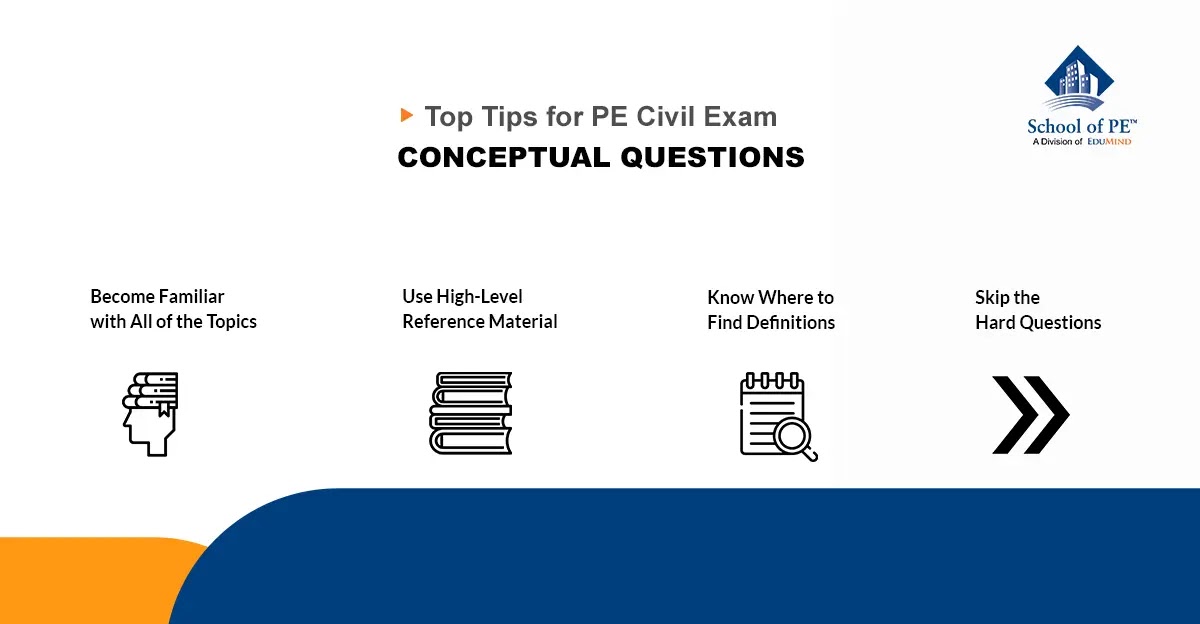The PE Civil exam is divided into two sessions: the breadth session and the depth session. Everyone who takes the PE Civil exam has similar questions which cover the same topics for the breadth session. You get to choose which depth topic you are tested on. Topics include geotechnical, transportation, water resources, and environmental, structural, and construction.
Conceptual questions are those that don't need to be solved with many if any, calculations. The questions are meant to test if you have a good understanding of the topic. You can usually complete them quickly if you're familiar with the topic but may struggle more if you are not familiar. Most conceptual questions will be in the breadth session, but the depth session will also have some. Here are some tips for successfully answering the conceptual questions.
1. Become Familiar with All of the Topics
Becoming familiar with every topic on the PE Civil exam doesn't mean you need to be an expert on everything. It means that you need to have a general understanding of each topic. Things like knowing the difference between clay and sand and knowing what a critical path construction schedule is will help you a lot when answering conceptual questions.
2. Use High-Level Reference Material
For the pencil-and-paper exam, you're going to take a lot of books into the exam with you. Knowing where to find information quickly is valuable. Many prep courses provide high-level reference material which is great for answering conceptual questions. These references don't go into the theory or in-depth equations for how to solve problems, but they provide a general understanding of topics. Often the answers to conceptual questions can be found quickly in these types of reference materials.

3. Know Where to Find Definitions
Because civil engineering is such a broad discipline, many terms may be foreign to you if you aren't familiar with a specific focus. I recommend taking a civil engineering dictionary with you to the exam. I took a construction dictionary to my exam which defined construction terms that I wasn't necessarily familiar with. Once I understood the terms used in the question, I was usually able to answer the conceptual questions easily and efficiently. Without understanding what the question was asking, I would have needed to spend unnecessary time looking for the right answer or simply guess.
4. Skip the Hard Questions
Time management is very important; spending too much time on a question early in the exam can cause you to run out of time and not answer easier questions. If you are struggling with a conceptual question, read it again and move on. This will allow your mind to still process the concept while you're answering other questions. You may find that by going back to the question later, you know the answer or can at least eliminate answers you know are not correct.
Remember that every question is weighted the same, and you are not penalized for wrong answers. Make sure that before time runs out, you mark an answer for each question.
With these tips, you will be able to successfully answer many or all of the conceptual questions.
No comments :
Post a Comment